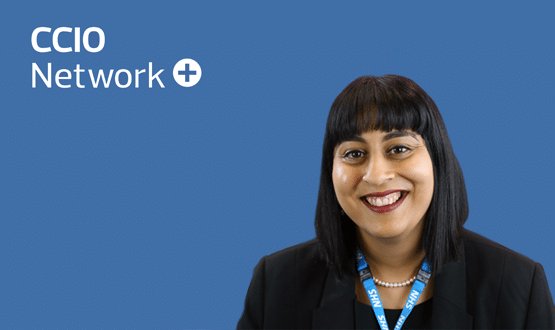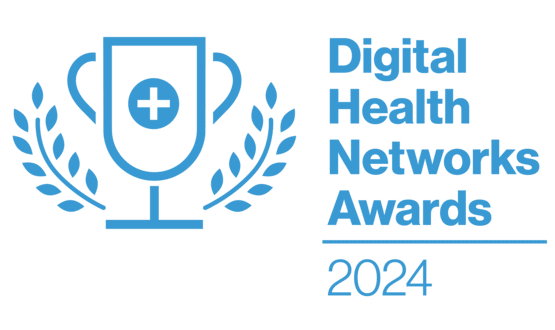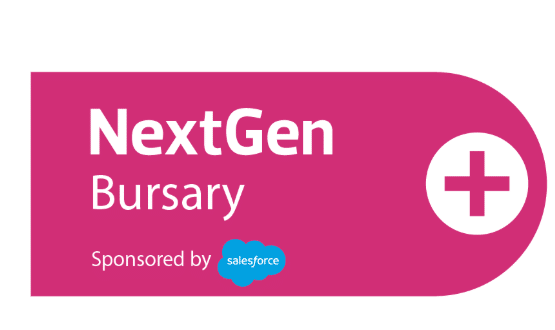The CCIO interview: Ayesha Rahim, Lancashire Care NHS FT
- 12 March 2018

This week we’re chatting with Ayesha Rahim, chief clinical information officer and deputy medical director of Lancashire Care NHS Foundation Trust. Ayesha tells us why the NHS needs to “skill-up” its leaders if it hopes to achieve true digital transformation, and explains why empowering patients is the key to exceptional healthcare.
She also floats the idea of a 24-hour cheese cafe, which we are definitely not going to steal…
Why did you become an NHS CCIO?
I’ve always felt that the key to improving the quality of care for patients is to allow staff to do the jobs they trained to do in the most efficient way possible. Technology can be a great enabler of this, and so when this job came up at my trust I felt that this was a fantastic opportunity to be a part of something that is starting to get the resource and attention it needs.
I’ve now been in post for 6 months and am loving it!
When did your interest in IT begin?
Tech at home has always been a part of my life since being a child. I remember very clearly getting our first family computer (an Amstrad) for Christmas one year. I also recall my dad having one of the first mobile phones which looked like a brick (and was about as heavy too). As time has gone on I got involved in IT projects at work, and realised the importance of clinical input in developing these systems right from the start.
Within your organisation, what is the most significant digital achievement of the past 12 months?
We’ve just gone live with a new EPR in the first clinical service of our trust as part of a staggered roll-out. The previous main clinical system was developed in-house and has been embedded in the organisation for the last decade or so.
This new one represents a significant step forward in terms of functionality, and the fact that almost all our services will be using the same EPR for the first time is no mean feat, given the variety of services we provide as a mental health and community trust.
Our health informatics team have worked incredibly hard and I’ve been really proud to be able to contribute to this.
What will be the most significant development in healthcare over the next 12 months?
I think the interoperability agenda will represent a huge milestone if we can get this working. Quite rightly, patients are surprised to learn how little information is shared routinely between healthcare providers.
Humans are complex and illnesses do not respect organisational boundaries, so why should information be constrained in this way?
What’s the largest barrier to being a more effective CCIO?
Time is always an issue when undertaking these roles – there’s no easy answer to this. However, I am really pleased to see the move towards professionalisation of the role, with the establishing of the NHS Digital Academy.
Clinicians and non-clinicians often speak different languages, so bridging this gap will help us all to work smarter, not harder.
What’s the largest barrier the NHS faces overall in achieving digital transformation?
I think we need to skill-up our senior leaders to help people feel more comfortable with technology, and to show them what the “art of the possible” is. We need to be more explicit in demonstrating what the real clinical benefits are, and importantly how we need solid investment to properly resource this agenda in order to realise the benefits.
If you have one piece of advice for other NHS CCIOs, what would it be?
Work on your “multilingual” skills – be able to communicate your vision and enthusiasm to clinicians, IT professionals, managers and service users.
Who in the NHS do you admire the most and why?
Since coming into post, I’ve gained a whole new perspective in just how much work goes on behind the scenes to keep the NHS machine ticking along.
All the support services colleagues and I come into contact with are just as dedicated to making the NHS better at delivering care to patients as frontline staff. But they rarely get the same public recognition for the hard work they do, often going above and beyond. Thank you for doing what you do.
If you were given £30 million to spend on digital transformation within your trust, where would that money go?
I would love to invest in more patient-facing technology – being able to deliver therapies and consultations remotely would really help us manage the challenges of our geography, which includes some remote, rural locations. We already use Skype for staff meetings extensively, so it isn’t as big a leap to extend that to our service users.
Similarly, I’d like to be able to make use of patient portals to help people access their own records, contribute meaningfully to their care plans and play a bigger role in managing their own conditions – healthcare is at its best when we empower patients in this way.
What is the most over-hyped digital innovation in health?
Voice recognition software – I’m not sure the sales pitch matches the output as yet, and “close enough” isn’t good enough when dealing with important clinical information.
What is the most under-rated digital innovation in health?
Judicious use of vetted smartphone healthcare apps really has the potential to revolutionise service users’ engagement in their own healthcare. If banking can embed this with all their stringent requirements around data security, then we should be able to get there in healthcare.
As an interim step, I think it’s great when patients log their own symptoms over time using apps. If they can articulate those trends over time accurately to me as their clinician, that improves the shared decision-making conversation so that they receive the best treatment for them.
What’s the worst job you’ve ever had and why?
When I was a medical student I worked as an agency support worker/auxiliary nurse in hospitals in my free time. I did one night shift in a central Manchester A&E department during Pride weekend. I barely lasted the shift!
Absolutely relentless, draining and stressful, so I take my hat off to all the staff working in those conditions day in and day out.
If you could travel back in time to meet one person, who would it be?
Queen Elizabeth the first – talk about a woman in a man’s world. I wonder how she did it in those times?
What’s the last song you listened to (be honest!)
Mica Paris singing Ella Fitzgerald live in a music venue in Manchester yesterday – fantastic voice, great stage presence and some audience participation!
What’s your favourite piece of technology at home and why?
It’s hard to underestimate the impact that smartphones have on our lives today. I do everything on it, from managing all my personal banking and booking holidays abroad, to accessing up-to-date clinical guidelines on the go. I even booked a restaurant table in a different country via WhatsApp recently – we are living in the future…
If you could have any other job, what would it be?
I would open a cheese café, open night and day and I’d sell my own home-made cheese alongside some artisana carb-based accompaniments.
In a film of your life, who would play you?
I’m going historical with Vivien Leigh – ambitious and sometimes headstrong, but hopefully I’m not as difficult to work with!




